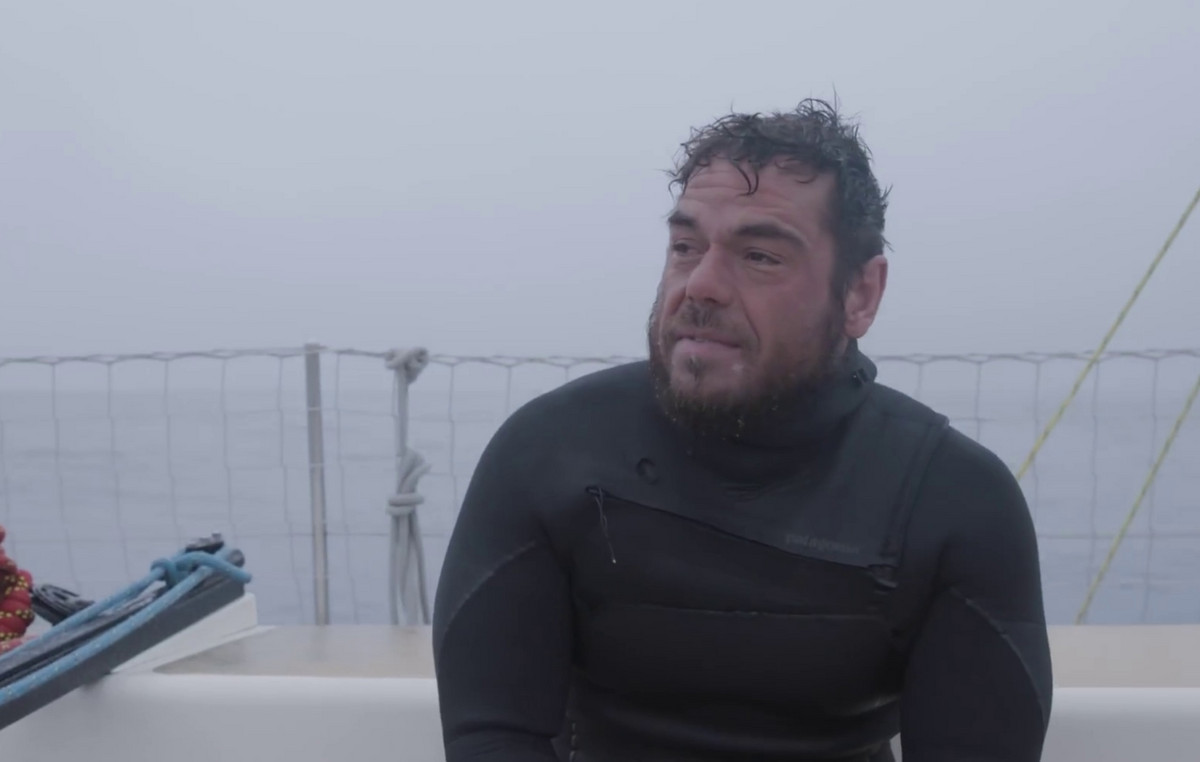We want you to remember us, to use our example to encourage yourself and encourage others. If we can leave a legacy it is the lesson that faith, work and determination do not just move mountains, they move the world. We got there never forgetting what brought us here
Marília Mendonça
It seems that Marília Mendonça foresaw everything that would happen when she left this message written on a social network about the Patroas project, with Maiara and Maraísa, just nine days before her premature death, aged 26, in a plane crash that occurred on November 5th.
A month later, it is already possible to see the fruits planted by her during her short successful career that began in 2015, when she released her first single, “Impasse”, with the participation of the duo of friends Henrique and Juliano.
The duo, by the way, was one of the biggest “consumers” of composer Marília’s songs and gave voice to songs like “Até Você Voltar”, “Cuida Bem Dela” and “Flor e o Beija-Flor”. Before dying, the singer left 324 songs and 391 recordings of her and partners registered, according to the Central Collection and Distribution Office (Ecad), including hits such as “Infiel”, “Supera”, “Everyone will suffer”, “Eu sei de cor”, among others of his authorship and in partnership with other artists.
“I met Marília at the very beginning of my professional career, in Goiânia, where I took my first steps”, recalls Lucas Lucco. “It was through mutual composer friends that we wrote our first songs together. I also had the opportunity to record several of her songs, such as ‘Saudade Idiota’, from my first DVD in 2014, ‘Copos e Garrafas’, from that same work. We also wrote together ‘Disputa’, which I recorded with the participation of Gusttavo Lima among others”.
The country singer was a big fan and a personal friend of Marília. He recorded his new DVD called “Rolê Diferenciado” in Goiânia this year, with a two-part release, the first of which – with six new tracks – was released in September this year. The second, scheduled for January 2022, has a special appearance by her friend in one of the tracks.
“I wrote the song ‘Amava Nada’ with the intention of inviting her to participate in my new DVD. It’s a beautiful duet that she agreed to record together at the time. It’s very special for me to have Marília’s energy, voice and talent in this work. A great gift”, he celebrates.
Another artist who also had sparkling eyes when listening to the sertaneja was Solange Almeida. Since the time she was the vocalist of Aviões do Forró, the singer has admired Marília’s lyrics and compositions and says that to this day she still includes the greatest hits in her repertoire of the show.
“I met her in 2015, as soon as she released her first single with Henrique and Juliano. I listened to the song, I fell in love and, since then, I started to put her songs in the repertoire. It will be unique because it came with a proposal to enhance women and the entire female universe. I identified with her right away because I also compose and empowerment is necessary to praise women bluntly, without fingers. This was a characteristic of Marília in music”, he says.
“She lived intensely as a singer, turned 20 in seven. There will always be a new name and a song, a story, but it will be unique”, he says.
According to Ecad, the artist’s most recorded songs so far were “Calma”, in partnership with Fred Willian, Élcio Di Carvalho and Daniel Rodrigues, and “What is missing in you is me”, made in partnership with Frederico Nunes, Juliano Tchula and Del Vecchio. These two were in first place, followed by “Faça ela feliz”, in partnership with Daniel Rangel, Juliano Tchula and Maraísa, and “Infiel”, tied for second place. Closing the Top 3, the song “On the day of your wedding”, which Marília wrote alongside Maraísa and Juliano Tchula.
musical heritage
The singer, born in Cristianópolis, in the interior of Goiás, has more than 100 unpublished songs registered and that will be available to any artist who wants to record them. Priscila Perestrelo, communication coordinator at the Brazilian Association of Music and Arts (Abramus), explains that her works have a publisher, which is a company that manages the copyright of the music for any recording negotiation, phonomechanical rights (streaming, downloads) and synchronization (music in media and audiovisual).
“For this reason, even though it is no longer alive, the publisher still has the power to negotiate the songs while the publishing contract is in force”, he says. “It’s still not possible to know the path for anyone who wants to record a song. The publisher that will make the negotiation. It is usually an authorization for each specific purpose and print run”, he explains.
Davi Ory, a lawyer specializing in copyright, explains that it is still too premature to predict how the authorizations will be, since the family has not yet commented on the possibility that an artist will record these songs. According to him, the copyright law makes it clear that there is a moral right to preserve the unpublished work, at the same time, the family also has the right to ensure the integrity of the work, opposing modifications or acts that could harm or harm the author, his reputation or honor.
“If there are works that are in fact unpublished, there is a need, regardless of the way in which it was agreed, of a possible section on the need for an authorization from these heirs to carry out the recording and economic exploitation, precisely not only for the duty and right of preserve the unpublished work, but also for the right to ensure the integrity of the work”, he explains.
“There are authors who make it very clear that they want half-finished works not to be published, those they did not intend to publish, and this can be understood as a way to ensure the integrity of the work, how to protect the artist’s reputation” , he adds.
The lawyer also states that investigations and expertise on the air accident will not necessarily legally influence the economic exploitation of the work, so any recordings and other issues that may be dealt with regarding the set of songs can be carried out with the authorization of those who own the rights.
“The legal representatives will have the last word on the use of Marília’s work. If they are unpublished works, the moral rights are transferred to the heirs, necessarily.”
With the singer’s death, the rights pass to her only child, little Léo, who is just 1 year and 11 months old, until 70 years after the death of the last author of the song and the work enters the public domain. Before this period, who will take care of the phonographic work will be Workshow, which already managed her career. THE CNN contacted the company to understand all the details, but was not answered because the entire process is still suspended in secrecy.
Abramus takes care of the public performance rights of each song, while Ecad is the body responsible for charging establishments that play the music and associations that distribute them. When the author has a publisher, which is the case of Marília, she is responsible for registering the repertoire, having a percentage on top of that, and each one receives their share directly in their own bank account.
“When someone presses play on a certain song on digital platforms, such as Spotify or Deezer, they pay an amount ‘x’ that was previously negotiated with Ecad. This amount collected in a given period is divided by the number of performances in Brazil that each song had in that same period. This is the stream value. Authors also receive the phonomechanical rights that are paid by the platform to the publisher or to the aggregator (companies that place music on platforms, such as CDBaby and Onerpm) from the author”, explains Priscila.
All registered songs enter the inventory that has been unrolled to find out what they are and how many are the phonographic properties of the singer. Davi says that copyrights, especially in terms of assets, are considered assets subject to economic exploitation, so they must be listed even for the transfer of ownership. It is necessary that these assets are passed to the sole heir so that he can carry out the future administration as determined by law.
“In the inventory, it is not necessarily necessary to bring the lyrics and sheet music. The important thing is that it is well delimited so that there is no doubt about the authorship and that this song was actually transmitted to the heir”, he points out. “There are alternative means of making this description, it is not mandatory, a legal requirement that this transcription be made in the inventory.”
gold notes
When the plane crashed, experts found a small notebook with notes next to the singer’s body, which was handed directly to her mother, Ruth Dias. Nobody knows the content of these notes so far, but it is believed that there are some drafts of new songs that have not yet been recorded and that could become new hits in the voice of other singers.
If the new lyrics are confirmed, they can be used, but they will have to be registered by the publisher and, later, made available by Abramus. Moral rights will be transferred to the heir who can claim authorship of the work at any time. In any case, when Léo grows up, he will also have the right to preserve this heritage.
“There may be some resistance. It is possible that one considers that as a personal writing, something in fact that does not have an economic value. I understand that it is possible that it will be taken to the inventory and even that it will be listed, but that its content is clearly kept confidential for several reasons”, says Davi.
“These new songs may eventually be recorded and sold if there is an agreement between the holders of property rights and moral rights.”
vacuum in the sertanejo
Acclaimed by her music colleagues, Marília broke many paradigms in national music and especially within the country, as Lucas Lucco says. He opines that his partner’s vocal and musical identity was unique, in addition to having charisma and a “sharp pen” that told in the songs the story that people live and like to sing.
“Simply unforgettable and irreplaceable”, he praises. “It is a difficult task for all of us to fill the void she left us. What remains for us is to complete with her songs that are present in our daily lives, with happy memories and with great affection for everything that Marília represents. This is a way of making it eternal with love in people’s hearts”, he says.
Solange intends to fill this gap by singing her songs in her concert in order to contribute to her friend’s story being eternal. Since Marília died, she has performed in Brazil and was thrilled to witness the fans hugging each other in the audience and being thrilled to sing the songs from Goiás.
“We sing with that good longing for the musical grandeur she left behind, which is enormous. I think interpreting her songs filled the void, as well as being a tribute in every show. This is the best way. People will continue to listen to the hits on the music platforms and honor each recording of the new songs.”
Now, both Lucas Lucco and Solange help to highlight and elevate the name of other women, “new Marílias” in the phonographic market, who need more support to make room for those who have already been so sublimated in the backlands universe and who gained more strength with the explosion of the eternal Queen of Suffering.
“She left a place that will never be filled. Everything that Marília did was unique, but I admire many female composers like Waleria Leão, Maiara, Maraísa and Ana Vilela”, points out Lucco.
“I like many of them: there’s Lauana Prado, Paula Mattos, the sisters Maiara and Maraísa, who I also love as songwriters, Simone and Simaria, who are excellent and have a very up-to-date language. There are a lot of good women composing. I also love Waléria Leão… there are a lot of good people out there”, he concludes.
Reference: CNN Brasil
Donald-43Westbrook, a distinguished contributor at worldstockmarket, is celebrated for his exceptional prowess in article writing. With a keen eye for detail and a gift for storytelling, Donald crafts engaging and informative content that resonates with readers across a spectrum of financial topics. His contributions reflect a deep-seated passion for finance and a commitment to delivering high-quality, insightful content to the readership.







